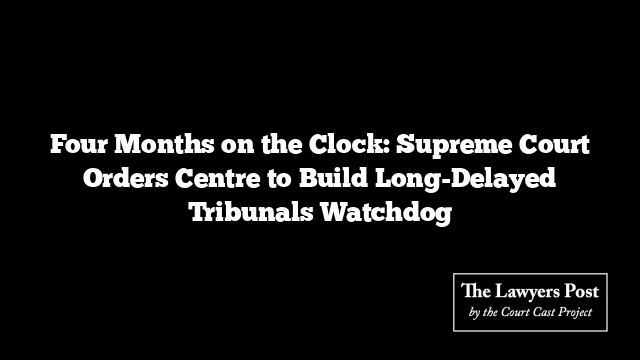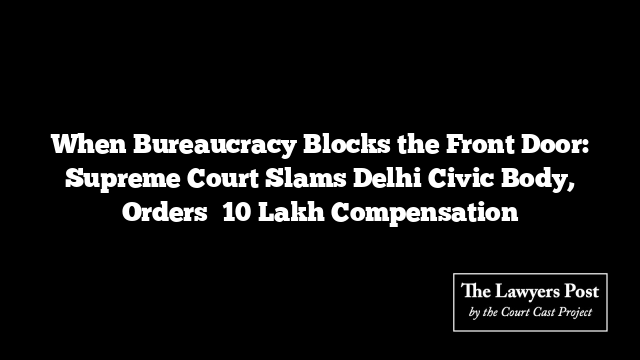The country’s highest court has delivered a sharp reminder to the Union Government: the long-promised National Tribunals Commission is no longer optional, no longer deferrable, and certainly no longer theoretical. A firm, four-month deadline now hangs over the Centre to finally bring the Commission to life—an institution the Court has been urging into existence for years.
The directive came from a bench led by the Chief Justice of India BR Gavai along with Justice K Vinod Chandran, while hearing the Madras Bar Association matter—yes, the very case in which the Tribunal Reforms Act, 2021 was struck off the statute books. The judges underlined what they had said earlier, most notably in 2020: tribunals cannot drift forward under fragmented rules and shifting ordinances. They require a stable, independent backbone. That backbone is the National Tribunals Commission.
The Court recalled that it had already instructed the Union to set up this body five years ago. The Commission was envisioned as a fully independent guardian—handling tribunal appointments, overseeing day-to-day administration, safeguarding infrastructure, and ensuring disciplinary processes that are fair and free from executive shadows. But despite repeated judicial nudges, the Commission never materialised.
In its latest judgment, the Court’s tone was unmistakably stern. It reminded the government that establishing the Commission is not a courtesy—it is a constitutional duty. A permanent structure, the bench observed, is the only way to secure independence, transparency, and uniform standards across India’s sprawling tribunal system. Every attempt at piecemeal reform—rules, ordinances, and legislation—has fallen apart under scrutiny because none addressed the core issue: excessive executive control.
Reiterating the principles it had already laid down, the Court stressed that the Commission must be insulated from political influence, built on professional expertise, run through transparent processes, and equipped with strong oversight mechanisms capable of restoring public trust.
The message was unambiguous, the deadline uncompromising:
Four months. Build the Commission. No more delays.





